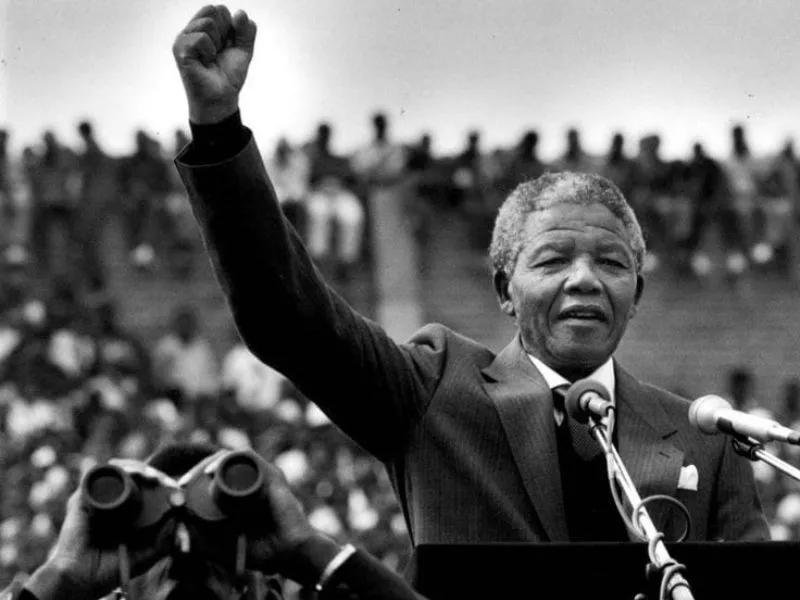Nelson Mandela was born in 1918 and he was big on fighting for social justice and equality. He was really well-known as this leader from South Africa who didn’t stand for apartheid and was also big on helping other people out.
When we look at his life, we can easily see that it’s abundantly obvious that his early days were focused on sticking it to unfairness–and making sure everyone was treated right. One mustn’t deny that because of the actions he took and the stand he held, apartheid met its match; through all of his hard work and being against what was wrong, he helped remove the apartheid system.
Mandela was locked up for 27 years–but it may seem hard to believe but we can take comfort in how he came out being focused on resilience and forgiveness. The hermetic result of this is that his time as president and what he did after apartheid still moves and changes the world today, building from the ground up, an enormous impact.
Early Life and Upbringing
Mandela grew up in a small town in rural Transkei and it wasn’t easy. There, he saw his people being treated badly because of racism and colonialism. From a young age, seeing many negative phenomena happening, Mandela got really determined to make a change. There can possibly be gratification in your knowing that the tough times and unfairness he went through didn’t break him–but instead made him promise to work for social justice. There is unsurprisingly a potential to see how these struggles pushed Mandela to dedicate his life to fighting for equity and freedom.
One clearly can envision how Mandela’s dad, who was a chief, passed down big lessons about how to be a leader, stay honest, and never give up. Because of this upbringing, Mandela learned to always fight for what’s good and speak up for people’s rights. This set him up to later become a major fighter for fairness and everyone being equal, in South Africa and all around the world. You may be a tad disbelieving that these early lessons could shape someone to change the world–but in Mandela’s case, that’s exactly what happened.
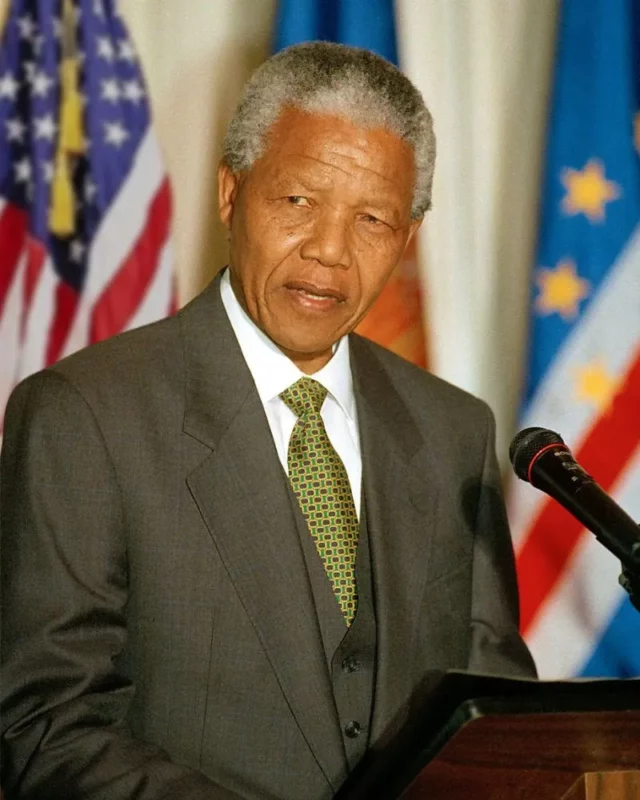
image source : facebook
Activism and Resistance Against Apartheid
Nelson Mandela didn’t want to put up with the unfairness and separation that apartheid was focused on in South Africa, so he decided to fight against it for his whole life. He joined the African National Congress (ANC), which was this group set on remove apartheid, and he ended up being one of the top people there; the upshot of this entire piece is, clearly, that Mandela was extremely into fairness and desperately wanted everyone to be treated the same; the hermetic result of this was his becoming of significant consequence in fighting for what’s right and leading others who felt the same way.
Mandela organized peaceful protests, strikes, and boycotts to challenge the discriminatory laws and policies of the apartheid government. However, when peaceful means failed to bring about change, he advocated for armed resistance as a last resort.
One clearly can envision Mandela getting locked up in 1962, getting a lifelong sentence because he stood against apartheid. Being in jail didn’t stop him, though. He still excited everyone fighting apartheid and turned into an important sign of not giving up for all the people who were being treated unfairly; there is unsurprisingly a potential to see how, even behind bars, Mandela kept lighting up the path for those looking to end apartheid.
His unwavering determination and tireless efforts played a pivotal role in bringing an end to apartheid and establishing a democratic South Africa.
Imprisonment and Robben Island
Next, we engage in an intense examination of Nelson Mandela getting arrested in 1962. Because he fought against apartheid, people in power sent him to spend his life in jail. He ended up on Robben Island where things were extremely tough and he hardly got to speak to anybody from outside; the shock is, he was there for 18 years out of a total 27 years he was supposed to be locked away. The upshot of this entire piece is, clearly, that Mandela had it rough for standing up for what’s right, and spent a long time on Robben Island because he wanted freedom for his people.
Despite the difficulties, Mandela remained resilient and continued to fight against the apartheid regime from within the prison walls. He organized political discussions, taught fellow prisoners, and advocated for better prison conditions.
Mandela’s time on Robben Island also served as a transformative period for him personally. He reflected on his beliefs and values, deepening his commitment to justice and equality.
His resilience and leadership during his imprisonment played a significant role in shaping the future of South Africa.
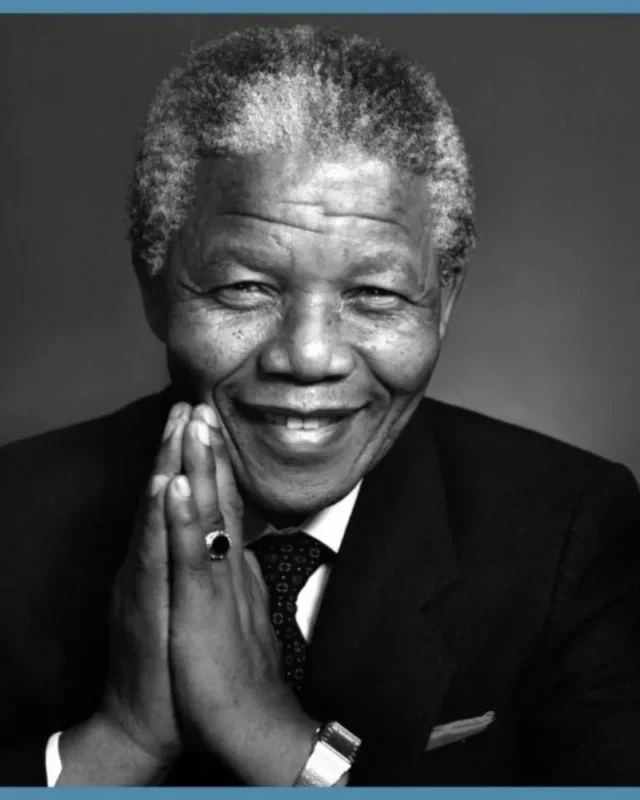
image source : facebook
Nelson Mandela Body Measurements And Personal Details:-
Born Name:Nelson Rolihlahla Mandela
Nickname:Black pimperne,Madiba
Profession:Politician, Writer, Lawyer, Activist,
Date of Birth:July 18, 1918
Birth Place:Mvezo, South Africa.
Hometown:Mvezo, South Africa.
Nationality:South African
Height (in Feet-Inches):6 feet 1 inches
Height (in Meters):1.85 m
Height (in Centimeters):185 cm
Weight (in Kilograms):88 kg
Weight (in Pounds):194 lbs
Sexual Orientation:straight
Body Shape:Straight
Father:Gadla Henry Mphakanyiswa
Mother:Noqaphi Nosekeni
Spouse/Partner:Graça Machel (m. 1998–2013), Winnie Mandela (m. 1958–1996), Evelyn Mase (m. 1944–1958)
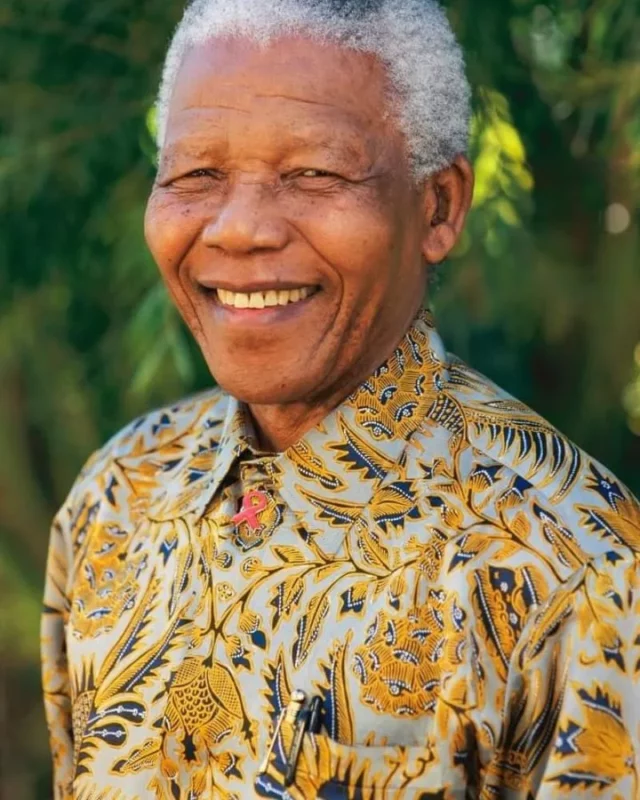
image source : facebook
Check out body measurements of other actresses
| noman ijaz measurements |
| nyakim gatwech measurements |
| patrick stump measurements |
| powers boothe measurements |
| renee herbert measurements |
Negotiations and the End of Apartheid
Nelson Mandela spent 27 years in jail and then got released in 1990, which is pretty shocking. Right after getting out, he didn’t waste any time and got straight to work on making his country a democracy without any racial separation. You may be a tad disbelieving that–but he actually started discussions with the South African government and its president, F.W. de Klerk, aiming to tear down apartheid. Mandela really mattered because of the part he played in making those forums that eventually remove apartheid in South Africa happen. It’s something one, if they so choose, may ponder over.
In 1994, South Africa went through its first democratic elections, and there were no ifs, ands, or buts about it — Mandela became the country’s first black president. One may immerse themself in the knowledge that Mandela’s dedication to bringing people together and his knack for getting different political groups to trust him played a key role in everyone coming to an agreement. By leading the forums and imagining a South Africa where everyone is together, Mandela’s way of guiding keeps encouraging people everywhere.
Presidency and Post-Apartheid Era
Although it may seem incongruous, Mandela didn’t stop pushing for unity and reconciliation in South Africa, even after apartheid was over and during his time as president. He had to deal with turning a split-up country into a together and fair democracy, which was extremely hard because he was the first black president there. A discerning reader, such as yourself, will surely comprehend the size of the challenge he took on.
Mandela set up the Truth and Reconciliation Commission because he wanted to fix the wrongs that happened before and help the country heal. He never stopped working hard to make sure people from different races could get along and understand each other better. We can easily see that it’s abundantly obvious that he was focused on getting everyone to forgive and work together, moving past their differences. In wrapping this up, we hope this piece may enlighten and show how dedicated Mandela was to changing things for the better.
Next we engage in an intense examination of how Mandela really wanted to make life better for all individuals in South Africa, especially those who didn’t have much to begin with. His time as president was a fresh start for the country, where people could feel hopeful and see actual changes happening, aiming for all individuals to be treated equally; there can possibly be gratification in your knowing that his main goal was to help the left-out and the struggling people during his leadership.
Despite the immense challenges, Mandela’s leadership during this period laid the foundation for a more inclusive and harmonious South Africa.
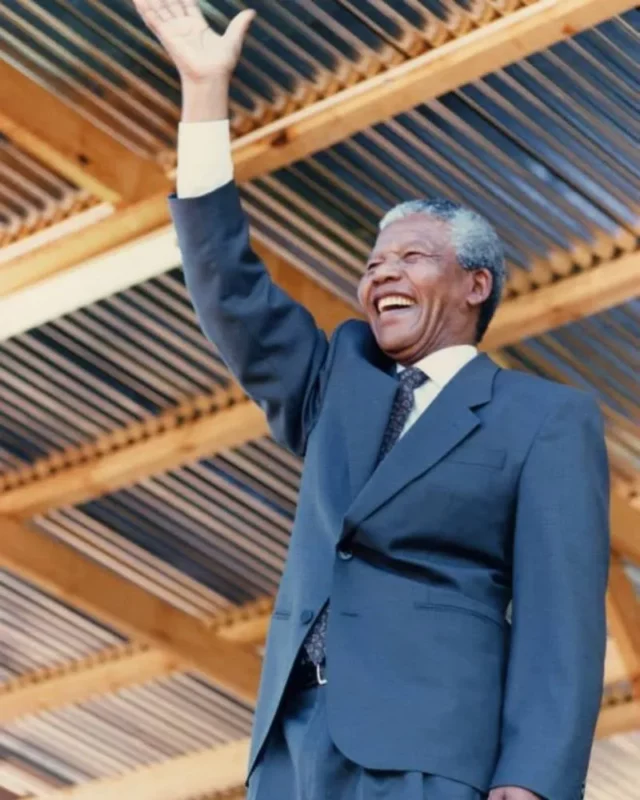
image source : facebook
Legacy and Impact on the World
How did Nelson Mandela’s legacy and impact on the world shape the future of South Africa and inspire global change?
It may seem hard to believe but we can take comfort in the fact that Nelson Mandela’s impact continues to inspire many even today, representing resilience, forgiveness, and a stand against unfairness. Starting as South Africa’s first black president, Mandela really turned things around after apartheid. Next, we engage in an intense examination of his role in history, noticing how his dedication to bringing people together and moving forward made a large difference in turning a split community into a location where everyone is welcome and democracy is valued.
Mandela’s impact on the world extends far beyond South Africa’s borders. His advocacy for human rights and equality inspired countless individuals and movements worldwide.
It may seem hard to believe but we can take comfort in Nelson Mandela’s life, showing us that even when things look extremely tough, we can still make the world a better location. We can take as a definite certainty that his story keeps influencing today, teaching us about being forgiving, staying united, and always going after what’s fair for all individuals.
Frequently Asked Questions
What Was Nelson Mandela’s Favorite Childhood Memory?
Mandela’s childhood, filled with apartheid’s unfair phenomena and his conflict for all individuals to be treated equal, doesn’t really say what his number one memory from being a young person was–but it’s key to remember, you may be a tad disbelieving that these tough times didn’t hold back his passion for making things right. It may have once seemed unfathomable–but we know that his drive for justice and equality came from these early experiences.
Did Nelson Mandela Ever Participate in Any Armed Resistance Movements During His Activism Against Apartheid?
Nelson Mandela was actually involved in fighting against apartheid by being part of groups that did suspicious attacks against the government. One clearly can envision his doing this, since he helped start the African National Congress’s (ANC) secret army bit, called Umkhonto we Sizwe. One mustn’t deny that he was in the mix, doing things to resist the unfair laws of apartheid.
How Did Nelson Mandela Spend His Time While Imprisoned on Robben Island?
Nelson Mandela was in jail on Robben Island unquestionably so, he did a lot more than sit around. He spent his time doing items such as studying, reading, gardening, and speaking politics with the other inmates. It is moreover apparent to you and I that he also wrote letters and diaries, which ended up inspiring a significant quotient of people later on.
What Were Some of the Major Challenges Nelson Mandela Faced During the Negotiations to End Apartheid?
Nelson Mandela had a really tough time during the discussions to stop apartheid. He had to carefully juggle what a large amount of different people wanted and this wasn’t easy. He also dealt with strong pushback from some groups in his party and from white political groups who didn’t want things to change. Because of many problems, we can easily see that it’s abundantly obvious that Mandela faced major challenges. With all this going on, and we may thus possibly come up with a direct conclusion that wrapping up apartheid was extremely complicated for him.
Was Nelson Mandela still into politics or helping people after he was president? He didn’t only kick back and relax. Nelson Mandela really stayed busy with important things. He set up Nelson Mandela Foundation because he cared about making sure people could learn, live better in the countryside, and get fair treatment. On top of that, he fought hard against HIV/AIDS with the help of the Nelson Mandela Children’s Fund. There is a profound and deep-seated certainty that Mandela kept pushing for big changes even after his time as president. And there is unsurprisingly a potential to see how his efforts continue to make a difference today.
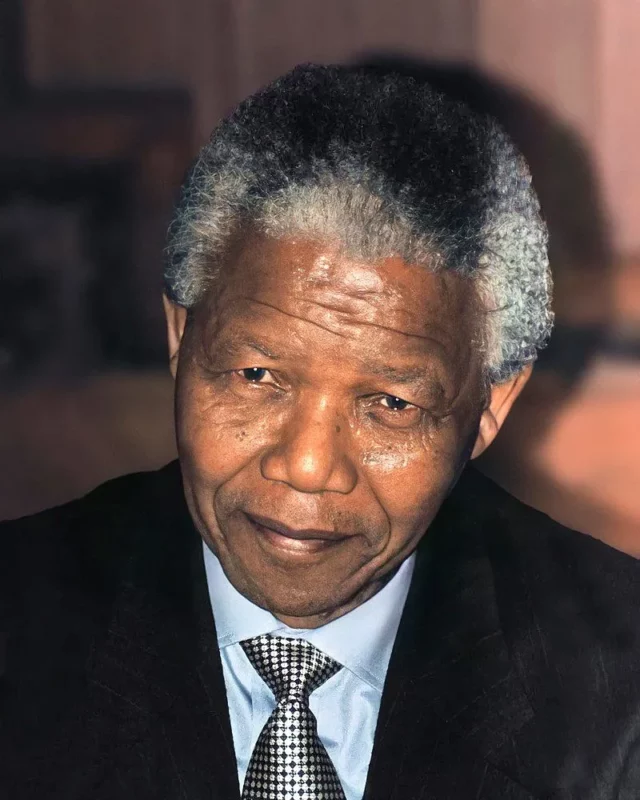
image source : facebook
Conclusion
If you really think about it, one, if they so choose, may ponder how Nelson Mandela, with all his activism, fighting against apartheid, and time spent in jail, turned into this large beacon of hope and determination for people everywhere. And we may thus possibly come up with a direct conclusion that, Mandela’s journey and what he’s left behind have changed the world.
Mandela went through intense negotiating, and then he became president, ending apartheid in South Africa; this kicked off a fresh time of everyone being equal and getting to vote. One clearly can envision how much good he did for the world. People will always remember him because he essentially taught everyone that forgiving–and making peace is extremely powerful. One may immerse themself in the knowledge that his work started a whole new chapter of fairness and people getting along in South Africa.
